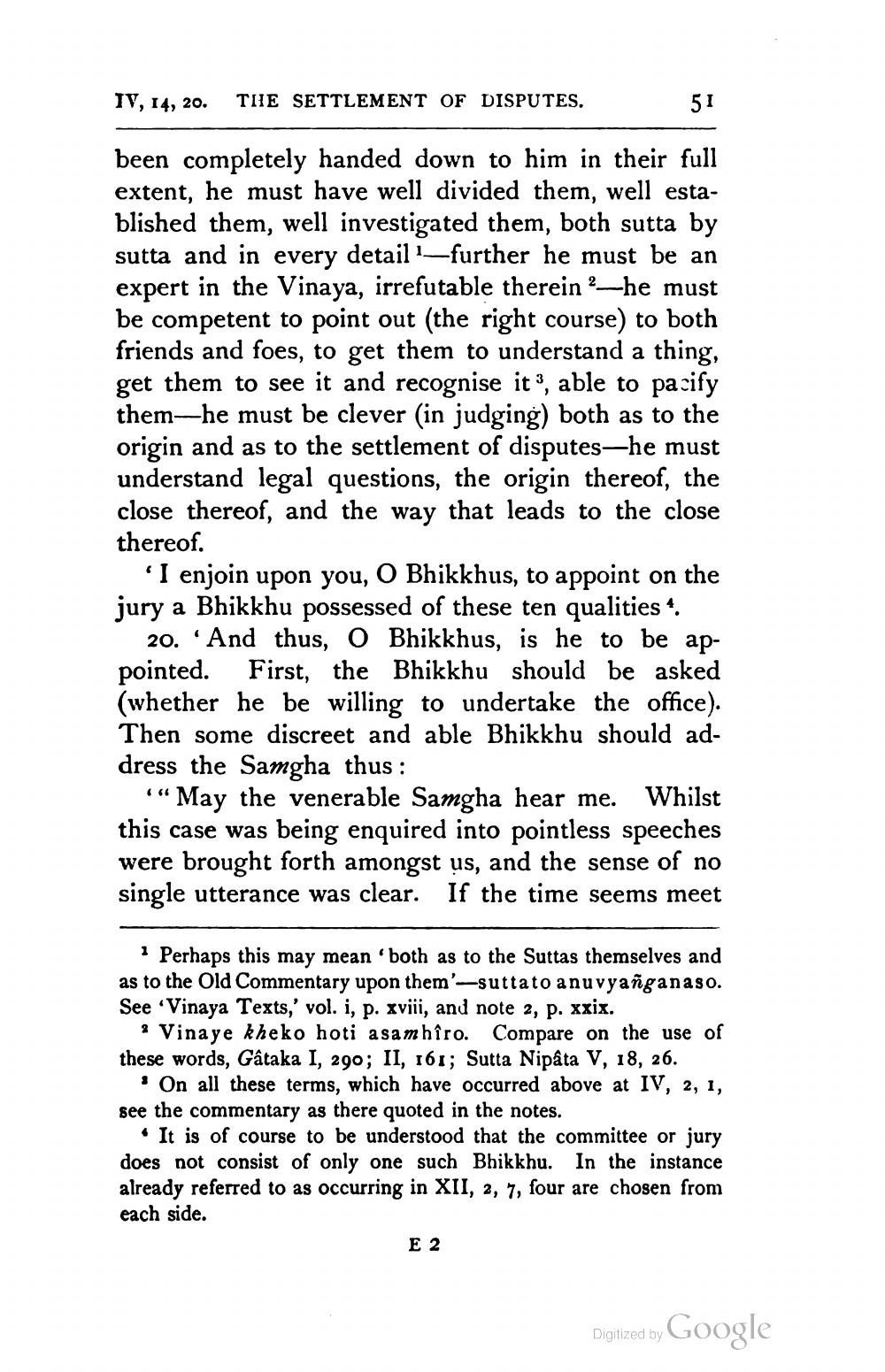________________
51
been completely handed down to him in their full extent, he must have well divided them, well established them, well investigated them, both sutta by sutta and in every detail1-further he must be an expert in the Vinaya, irrefutable therein 2-he must be competent to point out (the right course) to both friends and foes, to get them to understand a thing, get them to see it and recognise it 3, able to pacify them he must be clever (in judging) both as to the origin and as to the settlement of disputes-he must understand legal questions, the origin thereof, the close thereof, and the way that leads to the close thereof.
IV, 14, 20.
THE SETTLEMENT OF DISPUTES.
'I enjoin upon you, O Bhikkhus, to appoint on the jury a Bhikkhu possessed of these ten qualities.
20. And thus, O Bhikkhus, is he to be appointed. First, the Bhikkhu should be asked (whether he be willing to undertake the office). Then some discreet and able Bhikkhu should address the Samgha thus:
"May the venerable Samgha hear me. Whilst this case was being enquired into pointless speeches were brought forth amongst us, and the sense of no single utterance was clear. If the time seems meet
1 Perhaps this may mean 'both as to the Suttas themselves and as to the Old Commentary upon them'-suttato anuvyañganaso. See 'Vinaya Texts,' vol. i, p. xviii, and note 2, p. xxix.
2 Vinaye kheko hoti asamhîro. Compare on the use of these words, Gâtaka I, 290; II, 161; Sutta Nipâta V, 18, 26.
On all these terms, which have occurred above at IV, 2, 1, see the commentary as there quoted in the notes.
It is of course to be understood that the committee or jury does not consist of only one such Bhikkhu. In the instance already referred to as occurring in XII, 2, 7, four are chosen from each side.
E 2
Digitized by Google




